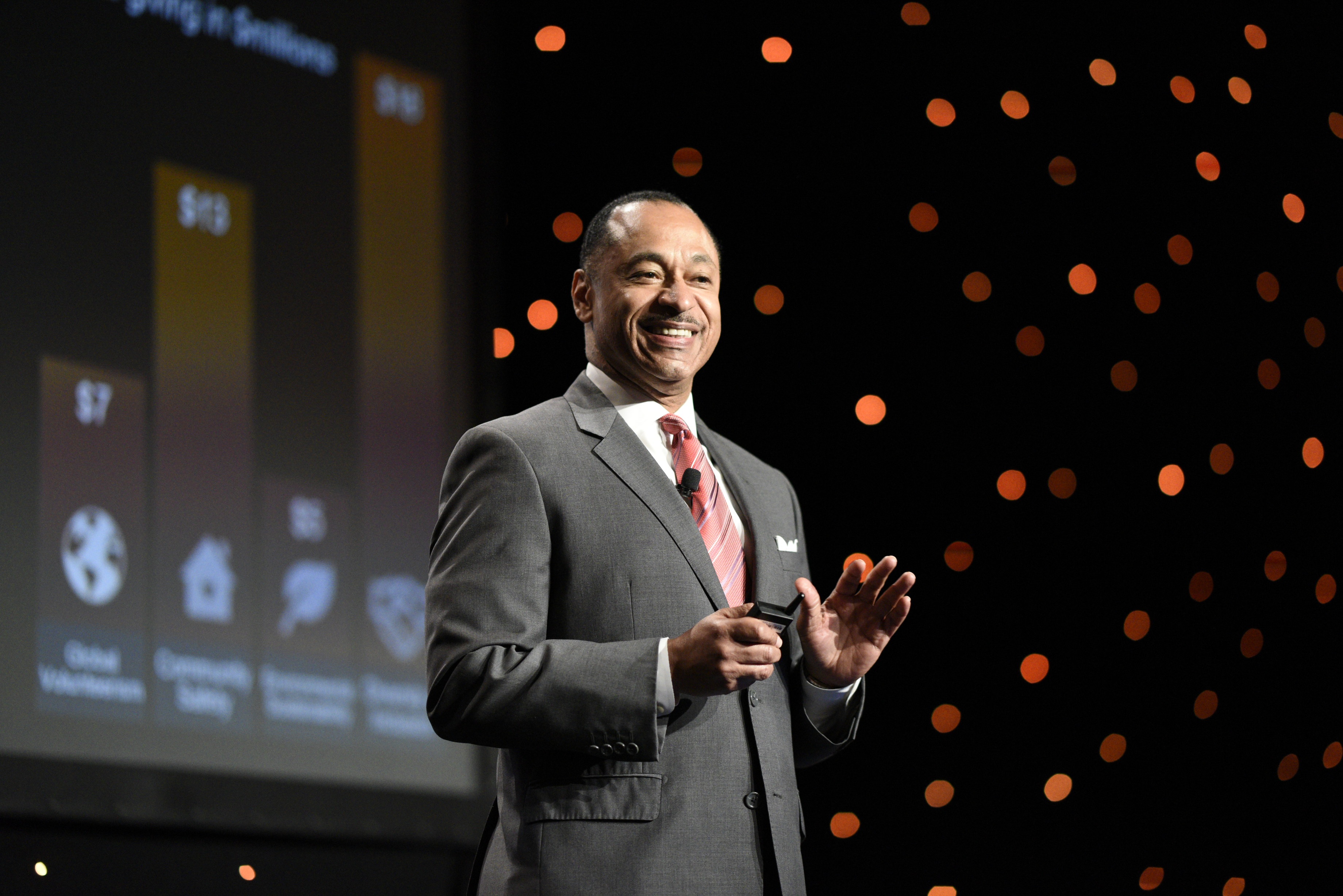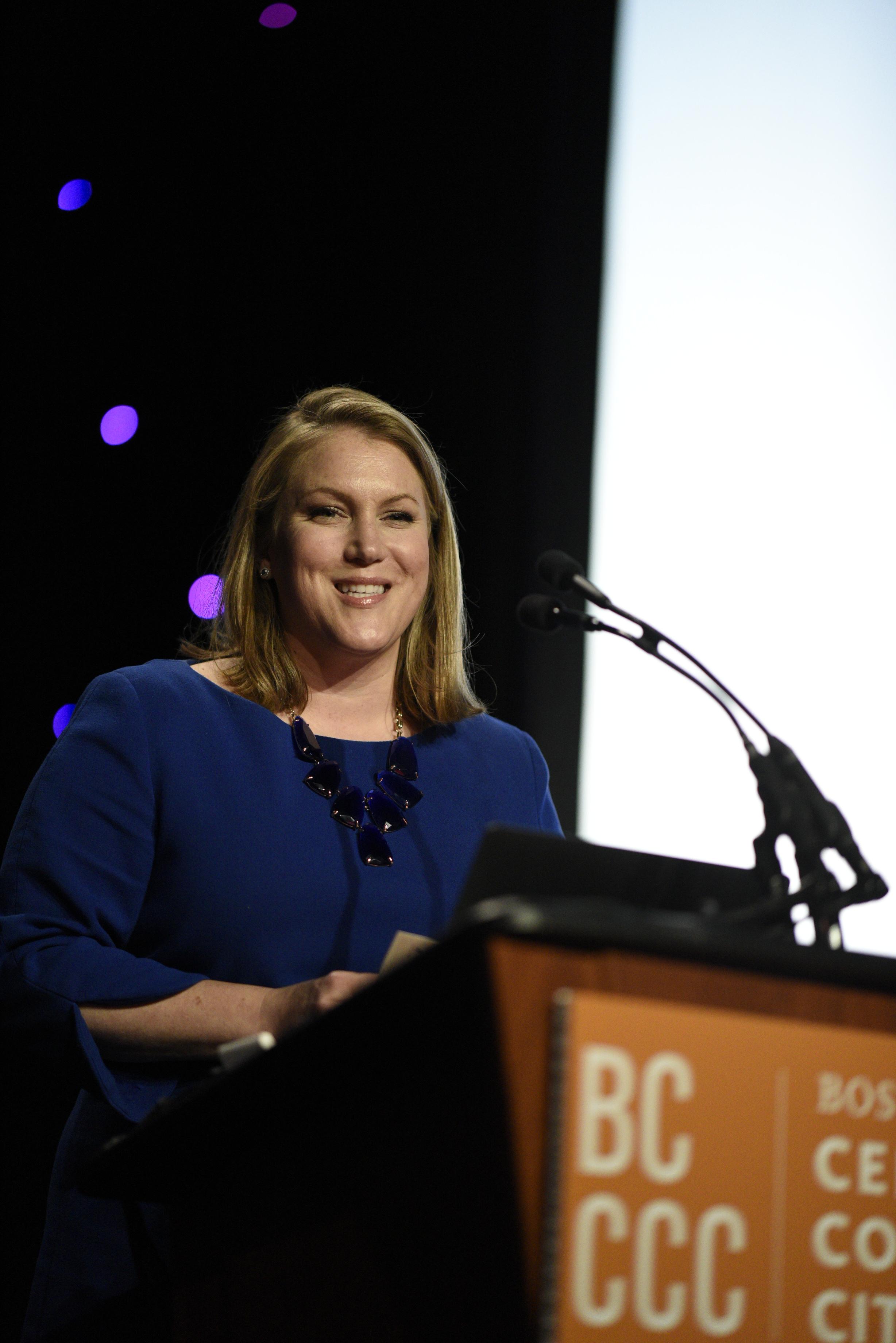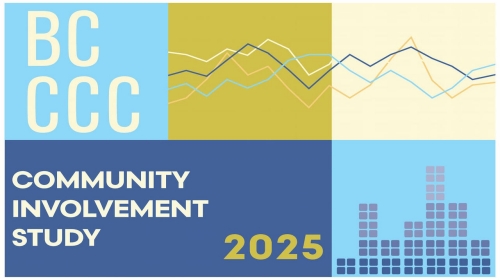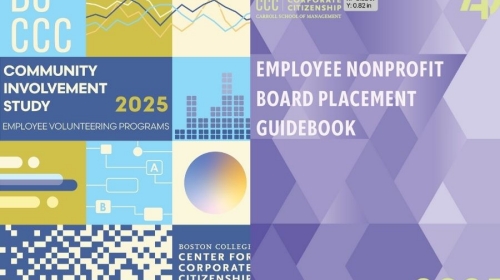 The final day of the 2018 International Corporate Citizenship Conference was rich with inspiration and ideas, as attendees learned from a wide array of CSR experts, solidified connections during networking events, and were introduced to next year’s Conference sponsor—Mary Kay—during the event’s closing session.
The final day of the 2018 International Corporate Citizenship Conference was rich with inspiration and ideas, as attendees learned from a wide array of CSR experts, solidified connections during networking events, and were introduced to next year’s Conference sponsor—Mary Kay—during the event’s closing session.
Collective Action for Ambitious Goals
To begin the last day, 600 CSR professionals gathered in the historic International Ballroom at The Beverly Hilton hotel to hear about the power of collaboration from some of the top leaders in the field. In a session titled Set the bar high: Achieving the Sustainable Development Goals—hosted by UPS—Jerald Barnes, director of global community relations and corporate relations of the UPS Foundation, was joined by Sue Stephenson, interim CEO of IMPACT2030, Nili Gilbert, co-founder and portfolio manager of Matarin Capital, and Tim Mohin, chief executive of GRI, to discuss how companies can work collectively to meet the Sustainable Development Goals (SDGs).
Created by the United Nations with input from both the public and private sectors, the SDGs are 17 goals created to address global issues ranging from education to inequality to economic growth and the environment. To kick off the session, Stephenson took the stage to share why IMPACT2030 was established, and what it seeks to achieve.
“UPS was one of the original founding partners of our organization,” said Stephenson. “UPS Foundation President Eduardo Martinez and his team came on board when it was just a vision, when we were asking ourselves: How do we activate human capital through employee engagement to achieve the SDGs?”
Throughout her talk, Stephenson offered examples of the ways IMPACT2030 is partnering with organizations to activate, collaborate, and measure efforts to achieve the goals, and highlighted an important business benefit they offer companies: engaged employees.
“We hear so much about purpose—employees want to be connected to a sense of purpose. The SDGs offer this, they provide a common framework that enables your employees to feel connected to global goals,” she said.
Stephenson was followed by Gilbert, who shared the financial implications of SDG alignment. She explained that many investors are using information regarding companies’ SDG commitments to evaluate firm quality, but that work will need to be done to bring the entire community along.
“It’s projected that meeting these goals will rely on $2.5 trillion per year in investment capital. Gaining that capital will require that we move the narrow but growing sustainability investment community into the mainstream,” said Gilbert.
It will be necessary, argued Gilbert, for companies to do their part to grow this trend by articulating and illustrating the business case for sustainable development.
“If we want to move the needle, it’s not going to be enough to inspire business people that already agree with us,” she said. “In order to achieve the SDGs, we have to find ways to translate the logics of traditional business practice to sustainable business practice. The key to making that leap is the principle of long-termism.”
Next up was Mohin. As the leader of one of the world’s most widely used sustainability reporting standards, he was able to offer unique insights into how disclosure can help companies step into the ambitious role of advancing global progress.
“In the age of globalization, companies are now larger than countries and they have supply chains that stretch around the world,” said Mohin. “CSR can be a powerful force for good, and reporting is a primary engine of responsible business.”
During his remarks, Mohin made an inspiring case for why companies should do the hard work of integrating their efforts with the SDGs by focusing on collaboration, additionality, and prioritization.
“We are the lucky ones that get to make our causes into our careers and there’s nothing more important than the cause of sustainable development—because it defines the world that we’re going to leave to our children and our grandchildren,” he said.
Barnes closed the session by sharing the powerful ways UPS aligns its four focus areas of community safety, diversity & inclusion, environmental sustainability, and global volunteering to the SDGs, and pointed to the importance of senior leadership involvement in galvanizing action.
“At UPS, we strive to make the SDGs resonate with our employees around the world, and leadership is vital to generating awareness,” said Barnes. “If you can get your CEO involved, your workforce understands it as his/her initiative, and it activates them.”
Activating its more than 450,000 employees is one of the things UPS does best. The company has already achieved 80 percent of its goal of 20 million volunteer hours by 2020. Barnes shared how his team encouraged employee involvement with SDG efforts through innovative communication and recognition programs.
“We created a dedicated hashtag, and utilized social media and creative informational materials to make the SDGs real to our volunteers,” said Barnes. “We wanted them to understand how they’re contributing to meeting these important objectives, and driving progress across the world.”
As the session concluded, Conference participants dispersed to attend one of the morning’s breakout sessions, which included a measurement workshop sponsored by Farmers Insurance, a case study on data-driven partnerships by JLL, and four different panel discussions on topics such as disaster preparedness, SDG alignment, the power of employees, and the potential of small teams.
Beyond Passion: The Business Imperative of CSR
 Later in the morning, attendees connected during a networking break sponsored by Arthur J. Gallagher, and then set out for the last of the Conference’s breakout sessions. Participants took advantage of four panel discussions—which covered subjects such as trends in corporate giving, gaining executive buy-in, how investors use sustainability reports, and gender equality advocacy—a case study on intentional partnerships by Samsung, and a stakeholder and materiality workshop hosted by Farmers Insurance.
Later in the morning, attendees connected during a networking break sponsored by Arthur J. Gallagher, and then set out for the last of the Conference’s breakout sessions. Participants took advantage of four panel discussions—which covered subjects such as trends in corporate giving, gaining executive buy-in, how investors use sustainability reports, and gender equality advocacy—a case study on intentional partnerships by Samsung, and a stakeholder and materiality workshop hosted by Farmers Insurance.
Following a networking lunch, the Center’s Executive Director Katherine V. Smith kicked off the last session of the event. She greeted the attendees for the final time, thanked them for their engagement, and invited them to the 2019 Conference, to be held in Dallas, with Mary Kay as its convening sponsor. She then welcomed Kirsten Gappelberg, director of corporate social responsibility & sustainability at Mary Kay.
During her remarks, Gappelberg reflected on the importance of being a strategic thinker to achieve the resilience and responsibility that drives results. She argued that—while connecting with your social mission is important—CSR professionals should focus on the business value of their important work.
“We’re our companies’ best connectors,” said Gappelberg. “We’re the architects of these programs, and we know that our work goes beyond being passionate about our companies and our causes. We do this work because it’s a strategic differentiator for our businesses.”
Gappelberg argued that CSR professionals must commit to continual education and development to create and deploy strategic corporate citizenship programs, and encouraged the participants to join the Boston College Center for Corporate Citizenship and Mary Kay in Dallas next year for the 2019 International Corporate Citizenship Conference.
To end the day, award-winning writer and speaker Terri Trespicio built on Gappelberg’s remarks during her presentation: Who cares? Why you need more than passion to compel an organization and create action.
“There’s a common misconception that if you follow your passion, everything works out,” she said. “The limiting effect is that you end up believing that you can move mountains through passion alone, and that can lead to you feeling stressed, tired, and resentful.”
Instead, she argued, CSR professionals should investigate their approaches to communicating and selling their initiatives—both to their organizations, and to themselves.
“The great challenge of CSR is that you’re trying to raise awareness and awaken concern for causes, while at the same time making it unconscious and automatic to participate in them,” said Trespicio. "Rather than working to get people to care about an issue, instead work to connect the cause to what they already care about. Instead of raising awareness, consider removing friction to smooth the path toward achieving your goals. Instead of working to serve those affected by a cause, consider serving all who play a role in the effort.”
She argued that, by shifting their mindsets in regards to what is fueling their own drive for progress, CSR professionals can maintain resilience and nurture an energy that sustains them over the long term.
“The key is this,” she said. “You don’t follow your passion, your passion follows you.”
Want to learn more about the Conference and keep up with the Center for Corporate Citizenship and its members? Subscribe to the Corporate Citizenship Blog by clicking below.


 The final day of the
The final day of the  Later in the morning, attendees connected during a networking break sponsored by
Later in the morning, attendees connected during a networking break sponsored by 







